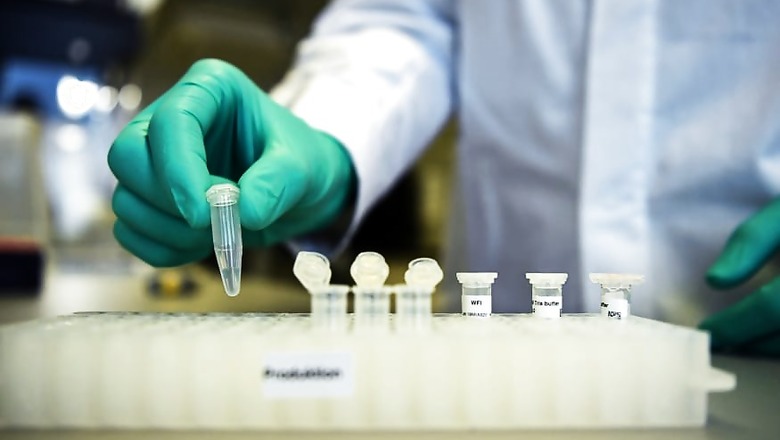
views
After getting a fresh nod from the ICMR, six COVID-19 patients have received convalescent plasma therapy at LNJP Hospital in the last one week, out of the total permitted limit of 200 recipients, senior officials said on Tuesday.
Two patients are scheduled for administering of the therapy on Tuesday and five other have been screened already, Medical Director of LNJP Hospital, Dr Suresh Kumar, said.
Plasma therapy on a trial basis was permitted by the Indian Council of Medical Research (ICMR) recently but then it had put it on hold.
After the fresh nod from the ICMR last week, LNJP Hospital and Max Hospital, Saket have done plasma therapy on coronavirus patients.
Delhi Health Minister Satyendar Jain, 55, was on Saturday administered plasma therapy at Max Hospital, where he is admitted for COVID-19 treatment.
"Earlier, 20 recipients were administered the therapy before the ICMR halted it. With fresh nod in place, now, we have received permission for 200 patients. And, for the last one week we have already done it on six patients out of the 13 immediately scheduled," Kumar told PTI.
Both LNJP Hospital and Max Hospital are dedicated COVID-19 facilities.
According to Kumar, each donor, a person who has recently recovered from COVID-19, develops antibodies, which is transferred to the recipient through plasma.
"Each person can donate 250-500 ml of plasma. We give first dosage of 250 ml to the recipient, and if needed second dosage of 250 ml after 24 hours," he said.
If a donor had given only 250 ml of plasma once, he or she can donate it again, another 250 ml of it after a few days, the medical director of the Delhi government's largest facility said.
Asked what are the pre-conditions for a donor to be considered fit for plasma donation, Kumar said, the donor should not have any co-morbidities, and should not be suffering from HIV or hepatitis or renal problems.
"We then conduct what is called antibodies titre test, and once the donor clears it, we seek their consent in writing before going forward with it. Then his pulse and BP are tested. The best time to donate is two-three weeks from the date of recovery," he added.
A large number of patients have been admitted at British-era LNJP Hospital in central Delhi since the outbreak of the pandemic here and many of those have also been discharged.
Kumar said 2,300 patients have recovered till date from the hospital, adding that they "counsel such people who have recovered to donate plasma".
Asked if only residents of Delhi have benefitted so far from the therapy, he said, besides local people, some paramilitary jawans have been its recipients too.
On the procedure of plasma therapy, the senior doctor said plasma is separated from the blood of donor using a plasmapheresis machine.
"This machine separates plasma and RBC, and the plasma is then stored in a blood bank and then donated to patients as per the need," he said, adding that generally juice is offered to a donor after the procedure.
Asked if there are chances of any side-effects on a recipient, he said, one in a thousand may display some sort of allergy, but that is very rare.
According to the Delhi health department bulletin issued on Monday, the COVID-19 tally in Delhi stands at over 62,000 with 2,233 deaths, and 36,602 patients have recovered, been discharged or migrated so far.
















Comments
0 comment